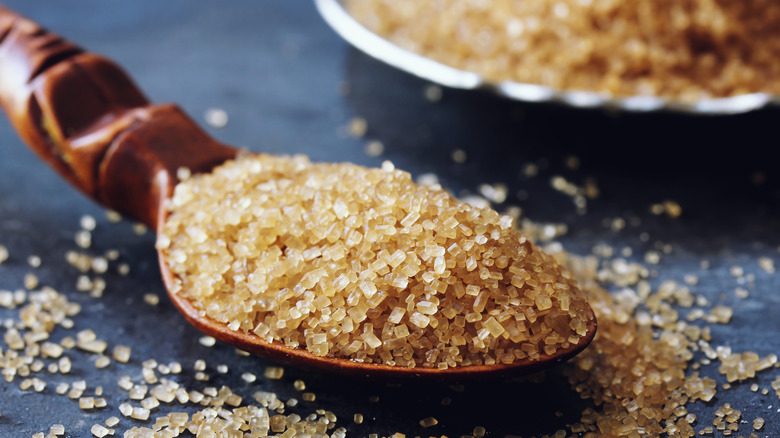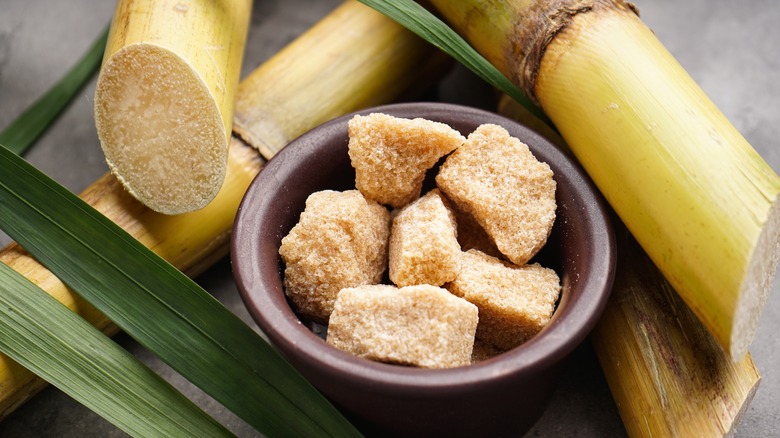Why You Can't Buy True Raw Sugar In The U.S.
Amongst the plethora of trending diets over the past few years is the raw food diet, which emphasizes eating — you guessed it — uncooked foods. The movement has been embraced by celebs like Demi Moore, and the idea is that eating raw foods can help you lose weight, boost your energy, and prevent disease, according to Eating Well. The diet believes that because cooking foods can destroy certain enzymes, eating them uncooked is healthier.
Not only are some home cooks going raw, but certain restaurants have hopped on the bandwagon as well. According to FSR Magazine, Pure Food and Wine in New York and Elizabeth's Gone Raw in Washington were prime examples of raw food restaurants, featuring dishes like a spring pea gnocchi dumpling and fried green tomatoes cooked under 118 degrees. Even pets are included in the raw food movement, with Instinct Pet Food's chief growth and marketing officer telling Pet Business, "The raw pet food category is booming; in 2021, it grew over 20%."
This phenomenon begs the question, should every food be eaten raw or are certain foods better left cooked? While we obviously don't want to be eating raw meat or poultry, some ingredients are a little more confusing. And when it comes to sugar, you may be surprised to learn what eating it raw really means.
Raw sugar isn't safe for humans
Before we can really understand what raw sugar is, we need to know what unrefined sugar is. According to Foods Guy, you get unrefined sugar when you extract the juice from sugar beets and cane sugar, and retain all the molasses. Raw sugar, however, is partially refined and contains about 2% molasses, while unrefined sugar has between 8 to 15% molasses. According to What Sugar, the raw version is only sold to refineries that then melt, filter, or evaporate it.
While raw foods may sound healthier, North General Hospital's director of obesity and diabetes programs Cathy Nonas told ABC News that raw sugar isn't any better for you. "There's no more nutritional value in raw sugar than there is in white sugar or brown sugar," she said. In fact, raw sugar may be less safe for consumption than other types. According to Better Homes & Gardens, it's not available for consumers to buy in the U.S, and any products labeled as raw sugar have actually been somewhat refined. The U.S. Food and Drug Administration (FDA) only allows it to be used in sugar refineries or for non-human consumption because it has too many impurities for people to safely eat.
If you're trying to figure out the healthiest sugar to buy (sound like an oxymoron?), Foods Guy recommends looking for artisanal cane sugar producers. They often sell in small quantities and refine their products as little as possible while still meeting safety standards.

